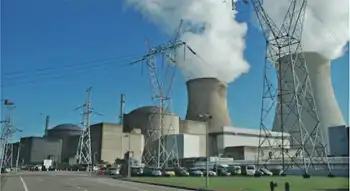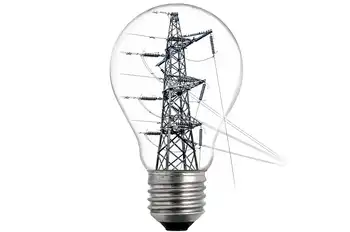FirstEnergy to convert plant units to burn biomass
By Fresno Bee
CSA Z463 Electrical Maintenance
Our customized live online or in‑person group training can be delivered to your staff at your location.

- Live Online
- 6 hours Instructor-led
- Group Training Available
The Akron, Ohio-based company said the conversion will make its R.E. Burger plant in Shadyside one of the nation's largest biomass facilities.
"Retrofitting the Burger Plant for biomass will expand our diverse generation portfolio even further and continue our support of state and federal efforts to increase reliance on renewable energy sources," FirstEnergy chief executive Anthony Alexander said in a statement.
During the transition, to be completed by 2013, the units can continue to burn coal. There will be test burns of the biomass fuel of varying amounts leading up to the conversion.
The plan is part of a 2005 agreement stemming from a federal court case in which FirstEnergy agreed to reduce pollution from its power plants.
The settlement between FirstEnergy, the U.S. Environmental Protection Agency and three northeastern states - Connecticut, New Jersey and New York - required the company to pay fines and cleanup costs at four plants. It was the second-largest federal settlement with an electric utility over air pollution.
A message seeking comment about the plans for the biomass plant was left with the EPA media office.
Gov. Ted Strickland said the FirstEnergy move would help Ohio adapt to its new advanced energy portfolio standard, which sets yearly benchmarks for the production of cleaner energy. Renewable energy will have to make up 12.5 percent of Ohio's electricity by 2025.
"This project will help jump-start the biomass renewable energy industry here in Ohio and also serve as a model for projects throughout the U.S.," Strickland said in a statement.
The converted units will potentially have the same generating capacity as the current coal operation, enough to power 190,000 homes. Some smaller units at the plant that burn coal or oil are not part of the conversion.
The company hopes to use corn stalk, wheat or grass dedicated specifically for the plant. The crop would remove as much carbon dioxide from the environment as it grows as it would release when it's burned. The company said burning mainly biomass would produce fewer emissions than retrofitting coal production with a scrubber, a device that removes pollutants such as sulfur dioxide.
The company has 4.5 million customers in Ohio, Pennsylvania and New Jersey.











